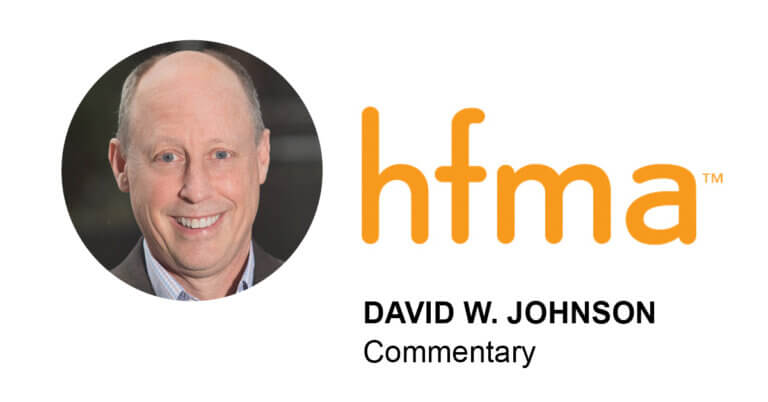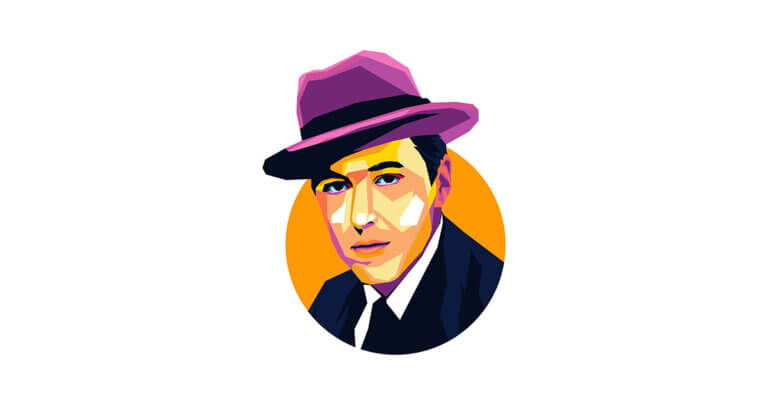January 27, 2022
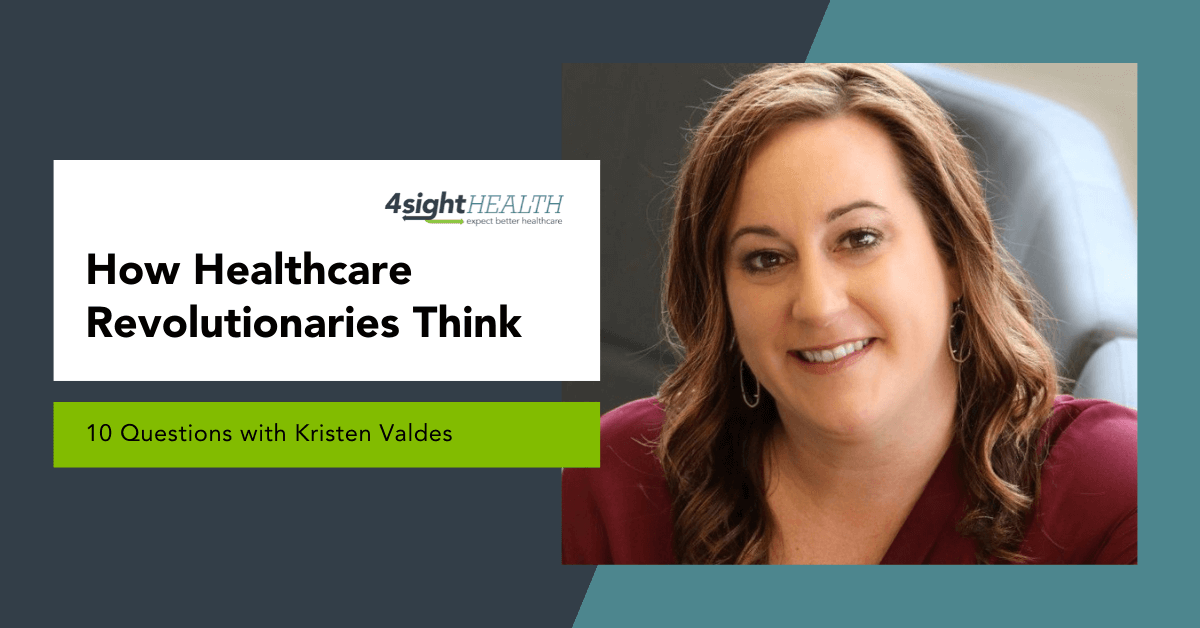
How Healthcare Revolutionaries Think: 10 Questions with Kristen Valdes
Welcome to the latest installment of 4sight Health’s series, How Healthcare Revolutionaries Think. Our interview series profiles healthcare instigators who believe that outcomes matter, customers count and value rules.
Some healthcare revolutionaries are born. Other healthcare revolutionaries are made. I’d put Kristen Valdes, founder and CEO of b.well Connected Health, a Baltimore-based consumer healthcare navigation platform, in the latter camp. Forged by her experiences as an industry insider — as a healthcare advanced analytics expert — and her experiences as a healthcare outsider — and as the mother of a daughter with a rare disease — Valdes is now one of the nation’s leading advocates for healthcare consumerism.
We spoke to Valdes about how her journey shaped her revolutionary healthcare ideas and why she thinks data-armed consumers will control the healthcare system within the next five years.
1. Kristen, how would you define a healthcare revolutionary?
Valdes: A healthcare revolutionary or a revolutionary in general is someone who has an idea to make things better and feels the need to follow that idea through no matter what. They can’t let that idea go because they believe in a better future. It’s a calling. They know something needs to be done, and if they just keeping pushing and educating and bringing folks around that their vision can be a reality someday.
2. When you think about your definition, who’s your favorite healthcare revolutionary, past or present, and why do they fit that description?
Valdes: My current top healthcare revolutionary is Aneesh Chopra, the first chief technology officer of the United States who was appointed by President Obama. He’s the co-founder of Hunch Analytics and president of CareJourney. He’s my choice because he has the personality and vision to bring all different kinds of people together from all sides of healthcare — payer, provider, big tech, small tech — as a group and push their thoughts out into the market as one voice. He’s direct and not afraid to ask the tough questions. At the same time his enthusiasm, his energy and his passion are unmatched. He can get people who are not like-minded in a room and get them to be like-minded by the time they leave.
3. Given your definition and choice of favorite healthcare revolutionary, do you consider yourself one?
Valdes: I don’t know that I would necessarily call myself a revolutionary. But I will say that I have a very clear mission and vision for what I want healthcare to be for consumers and their families. And, I will say that I have definitely been accused of being relentless trying to get there. I have a lot of passion for why change needs to happen in healthcare and why it’s so important to give consumers a seat at the table. We helped change federal regulations to make our vision a reality, and we’ve been influential in setting the standards by which all companies coming behind us can do the same thing.
4. Let’s switch gears a little bit and talk about digital transformation in healthcare. How would you define it? And is your definition different from how most healthcare executives would define it?
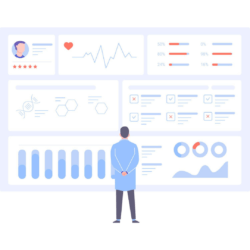 Valdes: If you ask 10 people to define digital transformation, you’d probably get 10 different answers. Let’s start with what consumers ultimately want in their healthcare journey, and that’s two things: be there for me when I need you and tell me when there’s something I need to do. It’s really that simple. The reality is healthcare today is particularly terrible at both. Most folks confuse having a “digital front door” with “digital transformation.” Having a digital front door means you have a website or a tool or an app or a chatbot that steers people to what they need.
Valdes: If you ask 10 people to define digital transformation, you’d probably get 10 different answers. Let’s start with what consumers ultimately want in their healthcare journey, and that’s two things: be there for me when I need you and tell me when there’s something I need to do. It’s really that simple. The reality is healthcare today is particularly terrible at both. Most folks confuse having a “digital front door” with “digital transformation.” Having a digital front door means you have a website or a tool or an app or a chatbot that steers people to what they need.
Digital transformation is much bigger than that. It touches the entire healthcare continuum and reaches into that second part of what consumers want: tell me when there’s something I need to do. It’s personalized. It’s proactive. And it’s portable. Tell me when I need a vaccine or a preventive screening or that it’s time to pick up my meds or I can save money by going to this pharmacy compared with another. That’s digital transformation.
5. Other industries have transformed digitally. I can track a pizza delivery to my house, and an app tells me when I should be at the front door. What’s the holdup in healthcare? What are the barriers?
Valdes: There are a lot of barriers, but let’s talk about two of the biggest: data and culture. Healthcare is fragmented and changing all the time. On average, one patient’s data exists in about 70 different places. If you order pizza, the restaurant knows your phone number, knows your name, knows your address and knows what pizza you’ve ordered in the past. That foundational technology platform is easy. Building a foundational technology platform that pulls patient data from myriad sources to create a personalized, proactive and portable digital experience is complex. It takes time.
Even if you were able to do that, the cultural shift to make it work is massive. Ask any health system trying to get all its doctors on a common mobile appointment scheduling system or a hospital trying to get all its clinical departments to use the same EHR. Not everyone is on board. This makes healthcare woefully behind in meeting consumers’ digital expectations being set by other industries.
6. I’m a healthcare consumer. You’re a healthcare consumer. We’re all healthcare consumers. After that answer, should we be pessimistic or optimistic about healthcare transforming digitally?
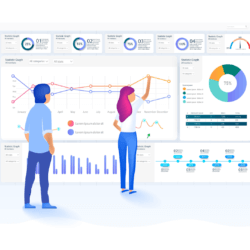 Valdes: Both. Healthcare isn’t going to change by itself. But healthcare will change because of patients. The sentinel events that will change healthcare forever are the interoperability and information blocking rules that implement provisions of the 21st Century Cures Act passed in 2016. The rules took effect last April. They give consumers control over their own health information. They allow consumers to collect and aggregate their own health data and direct it to anyone they choose along their healthcare journey. My body, my data. We no longer treat the data as the intellectual property of others. We put it into the hands of people to whom it matters most.
Valdes: Both. Healthcare isn’t going to change by itself. But healthcare will change because of patients. The sentinel events that will change healthcare forever are the interoperability and information blocking rules that implement provisions of the 21st Century Cures Act passed in 2016. The rules took effect last April. They give consumers control over their own health information. They allow consumers to collect and aggregate their own health data and direct it to anyone they choose along their healthcare journey. My body, my data. We no longer treat the data as the intellectual property of others. We put it into the hands of people to whom it matters most.
Data is currency, and patients now control it. That will force the status quo to change. Incumbent healthcare organizations will be forced to attract business by how well they spend that currency to transform the entire patient journey. Having an app or a portal just won’t be good enough anymore.
7. You used the phrase status quo. When did you realize that the current system is set up to maintain the status quo and work for incumbents rather than customers?
Valdes: Having been part of building the healthcare ecosystem for the last two and a half decades, I was as much an expert as anyone in how to navigate the system given my career path. But it wasn’t until my daughter was born with a very significant autoimmune disorder that I realized how fundamentally broken the system was for the average person. It was impossible for me to navigate the system on her behalf.
We went from doctor to doctor and from specialist to specialist trying to get a diagnosis, and every time we walked in the door, we had to start over. None of them knew her medical history, the medications she was on or the tests she took. And all of them treated me like a mom who knew a little bit too much about healthcare who was trying to find something wrong with an otherwise perfectly healthy child. It wasn’t until a near-fatal medication error caused by EHR systems not talking to each other that they started listening.
You keep pushing, but the system has a way of pushing back against you if you don’t have all the evidence and the proof. That’s why it’s so important for consumers to control their health data. It disrupts the status quo, and the result is better outcomes at lower costs for the patient.
8. You were previously an executive at XLHealth and then at United Healthcare after United bought XLHealth in 2012. You helped build the healthcare ecosystem. You were part of the status quo. What did you learn in your work experiences there that told you healthcare has to change?
Valdes: At XLHealth, we reached out to Medicare patients with chronic conditions to help them manage their health and close gaps in their care. It wasn’t sustainable because we had a growing population that was getting sicker and aging into Medicare with diseases that could have been avoided. But there weren’t going to be enough doctors and nurses in the world to reach out to each one of them and give them the personalized touch they needed. That’s when I realized the importance of digital as a way to meet that demand.
At United and Optum, I worked with so many smart and motivated people who are passionate about doing the right thing. None of them intentionally are trying to maintain the status quo. They want to move things forward. What happens, and I think this is true across the industry, is that they’re racing to keep up with all the things that sustain them financially. They’re not incentivized to do the right thing or do something that doesn’t have a proven or perceived outcome or do something that’s a complete unknown. There’s not a lot of motivation to put money behind things like that.
9. Speaking of motivation, let’s talk healthcare consumerism. Where are people along that spectrum as a movement? Is it alive, dead or somewhere in between?
Valdes: It’s very much alive. We’re at a tipping point for digital transformation and consumerism, and it’s exciting. The rules of the game have changed. Data is liquid, and consumers control it. That means it can go anywhere. That changes the competitive landscape. That means business models have to change. Consumers can choose where they want to go and who they want to be loyal to. Incumbent healthcare organizations need to catch up, and they need to catch up quickly or risk not being here. We’re going to see a massive transformation in how people access healthcare in the next five years.
10. What’s the best idea you have that you haven’t articulated to your company or to the industry? Something you’ve been mulling and want to try?
Valdes: A digital health marketplace that a payer like an employer would offer to its employees from which they could choose the best solution for their individual needs. Historically, most employers will offer one solution to all their employees after they issue an RFP and pick the company that best meets its selection criteria. They wonder why they get little employee engagement. Why not give workers a pool of money and let them pick the solution that’s right for them? That also transfers the decision-making power to consumers, not the company.
Burda’s Final Bit
All of us have had a negative experience with the healthcare system. It may be something mundane like filling out the same form on a clipboard over and over again. It may be something life threatening like a missed diagnosis that delays treatment. Most of us, though, don’t do anything about it, chalking it up to it just being the way it is. Thanks to people like Kristen Valdes, we won’t have to take it anymore. She is clearing the path and teaching us how to take control of our own health and how to use the healthcare system. If you’re an executive of an incumbent healthcare organization, you’d be smart to invite Valdes in for a short chat. You’ll quickly realize why what we say at 4sight Health is true: customers count.
Kristen Valdes — CEO b.well Connected Health
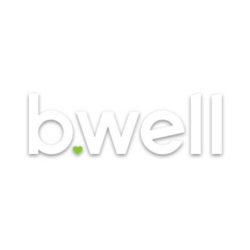 Kristen Valdes is a transformative force in today’s healthcare marketplace, spearheading the conversation on how empowering consumers can transform healthcare delivery. Kristen is a seasoned healthcare executive with over 20 years in the industry and has dedicated her life to pioneering inventive solutions. This quest has been largely driven by her powerful personal story as the mother of a child suffering from a significant autoimmune disorder.
Kristen Valdes is a transformative force in today’s healthcare marketplace, spearheading the conversation on how empowering consumers can transform healthcare delivery. Kristen is a seasoned healthcare executive with over 20 years in the industry and has dedicated her life to pioneering inventive solutions. This quest has been largely driven by her powerful personal story as the mother of a child suffering from a significant autoimmune disorder.
Prior to founding b.well, Kristen was a Vice President at United Healthcare running Medicare Advantage plans across 12 states.
Mrs. Valdes has been recognized as a 40 Under 40 Healthcare Innovator and b.well Connected Health has won various competitions and awards including being named Top Innovator by Accenture in their Global Health Tech Innovation Challenge.
Read More Healthcare Revolutionary Interviews
- February 2021: Gaurov Dayal, M.D.
- March 2021: Thompson Aderinkomi
- April 2021: Jon Pearce
- May 2021: Kurt Waltenbaugh
- June 2021: Robert Pearl, M.D.
- July 2021: Scott Powder
- August 2021: Jeff Jones
- September 2021: David Greenberg and Dave Jacobs
- October 2021: Glen Tullman




